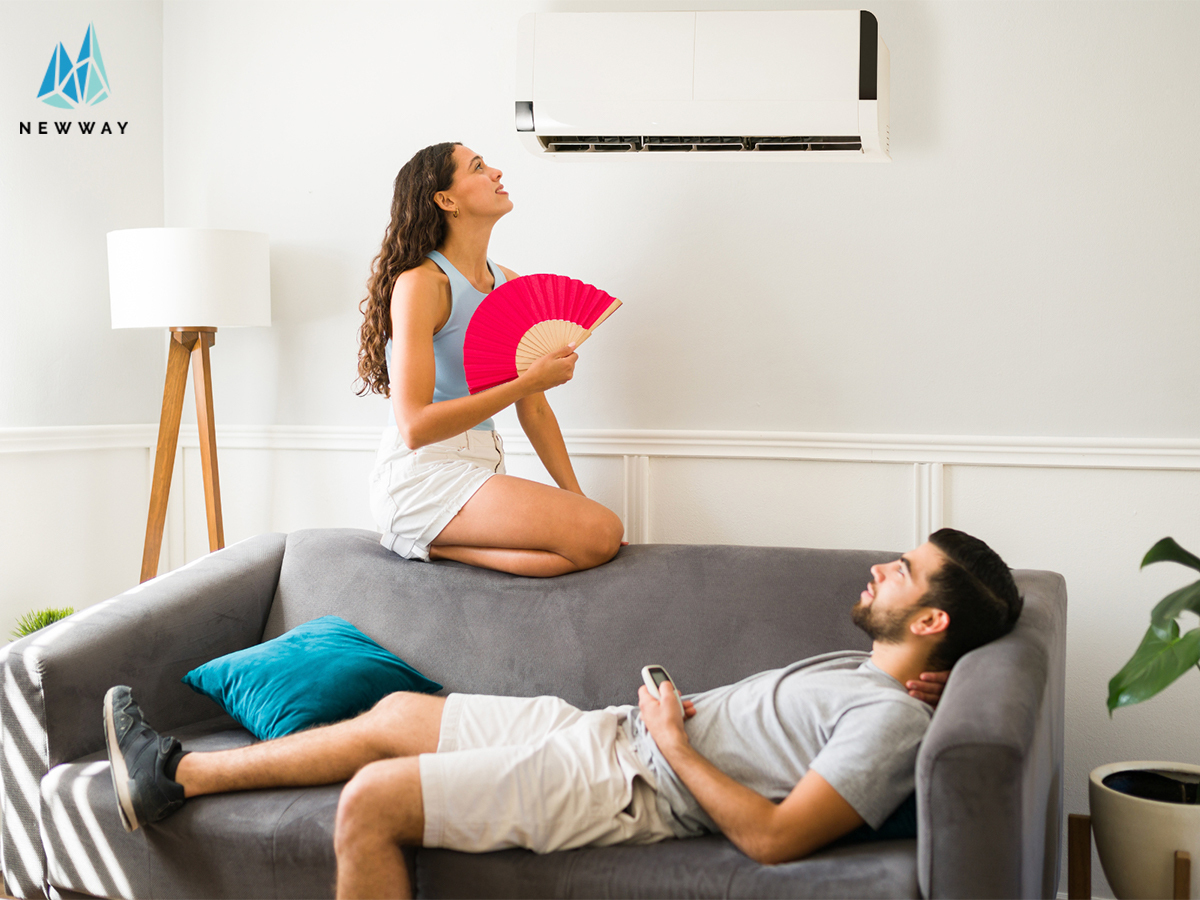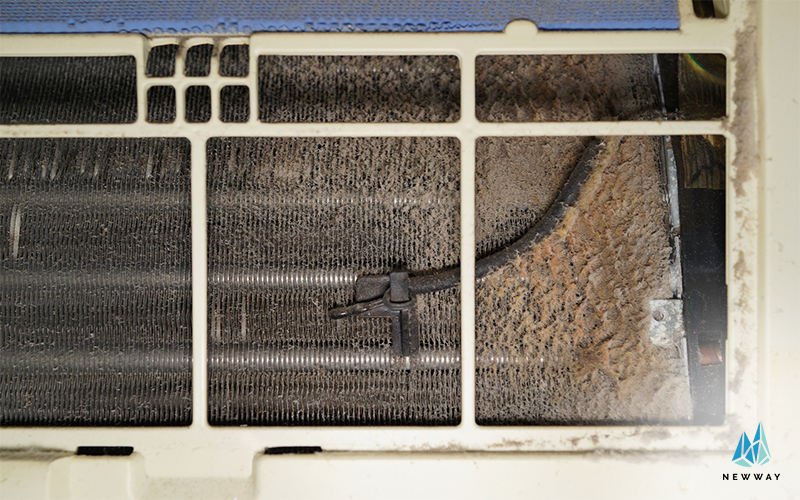
Does Singapore‘s hot and humid climate leave you feeling sticky and uncomfortable? You are not alone. Thankfully, we can rely on a well-functioning air conditioning system to keep us cool. However, as time passes, these systems might start showing signs of wear and tear. If your aircon is not cold or you’re experiencing other issues, don’t worry! This article will guide you through identifying the root causes of issues for prompt rectification. Check out some useful tips here for troubleshooting your aircon.
Common Reasons Your Aircon Is Not Cold
Does Singapore‘s hot and humid climate leave you feeling sticky and uncomfortable? You are not alone. Thankfully, we can rely on a well-functioning air conditioning system to keep us cool. However, as time passes, these systems might start showing signs of wear and tear. If you are experiencing issues with your air conditioning unit, don’t worry! Identifying and addressing the root causes early on can help you avoid more significant problems and expensive repairs. This article will guide you through identifying the root causes of issues, steps to rectifying the problem, and when to call in the professionals. By understanding these aspects, you can ensure your air conditioning system operates efficiently, keeping your indoor environment comfortable and cool despite the external heat. Read on for further insights.
1. Insufficient Cooling
Is your aircon not as cold as it used to be? Several factors could be contributing to the issue. Start by checking your air filters, as dirty ones can obstruct airflow, preventing your aircon from efficiently cooling the air. Additionally, improper thermostat settings can lead to inadequate cooling. Setting your thermostat too high or too low may fail to signal the aircon to cool the space to the desired temperature. If you’re still unsure about the root causes, it is always best to seek professional assistance. Experienced technicians have the expertise and tools to diagnose and address complex aircon problems effectively, restoring your air conditioning system to optimal performance.
Learn more: Comparing DIY and Professional Repair for Aircon Condenser Leak Issues
2. Poor Airflow
Have you been noticing a reduced amount of cool air coming from the vents or feel that your air conditioning unit is working harder than usual? These could be signs of poor airflow, which may be caused by the following:
- Clogged air filters
Over time, dust, dirt, and debris can accumulate in the filters, hindering the effective flow of air into the system.
- Dirty Evaporator and Condenser Coils
Contaminants and dirt accumulation on the evaporator and condenser coils may impede airflow, restricting the transfer of heat between the refrigerant and the surrounding air.

To rectify weak airflow issues, start by inspecting and replacing clogged air filters regularly, ideally every one to three months depending on usage and environmental factors. Also, make sure to clean the evaporator and condenser coils with a soft brush or vacuum to remove impurities for optimal system efficiency.
3. Foul Odours
Unpleasant odours emanating from your air conditioning vents can significantly impact the quality of your indoor air. They are usually caused by common culprits such as dirty air filters, mould growth within the unit, or stagnant water in the condensate drain pan. To address this issue, you need to take proactive steps such as cleaning your air filters regularly and inspecting for any signs of mould growth. In addition, using air purifiers or natural deodorisers can help to neutralise odours for better indoor air quality. If you are seeking a more thorough assessment, consider indoor air quality testing services. During the testing process, professionals will collect air samples from different areas of your building for analysis. This can help identify any underlying issues contributing to poor air quality, such as high levels of dust, pollen, mould spores, pet dander, or volatile organic compounds (VOCs) emitted from household products or building materials. Once identified, you can take appropriate measures to address the issues to promote a healthier indoor environment.
4. Thermostat Issues
Thermostat problems, ranging from incorrect temperature readings to outright malfunctions, are a common occurrence among aircon users and can often result in the aircon not being cold enough to cool the room properly. These issues can often be attributed to two main factors: calibration issues and loose or damaged wiring. The former happens when the thermostat inaccurately measures the room temperature while the latter disrupts communication between the thermostat and the HVAC system, leading to complete malfunctions. In either case, seeking professional assistance is advisable for an accurate diagnosis and to resolve these issues before they cause further damage to your air conditioning system.
Troubleshooting common air conditioning problems doesn’t have to be a daunting task. By understanding the signs and taking practical approaches, you can ensure optimal performance and efficiency of your cooling unit.
Founded in 1987, Newway takes pride in enhancing the cooling experience for both residential and commercial air conditioning customers in Singapore. Looking for reliable HVAC technicians to rectify common aircon issues?
How to Fix Aircon Not Cold Problems: DIY Tips
If your air conditioner isn’t cooling as it should, there are a few simple steps that you can take before calling in a professional.
Check the Thermostat
Ensure that your thermostat is in cooling mode and the temperature is set lower than the current room temperature. If the settings seem correct but the issue persists, proceed to the next step.
Clean the Air Filters
Dirty or clogged air filters are one of the most common reasons for reduced cooling efficiency. Locate and carefully remove the filters to check for dust and debris.
To clean the filters:
- Rinse them under running water to remove dirt.
- Use a soft brush for stubborn grime.
- Allow the filters to dry completely before reinstalling.
Inspect the Outdoor Unit
- Turn off the power to your aircon for safety.
- Remove visible obstructions like leaves or branches.
- Use a soft brush or cloth to clean the exterior fins gently.
Reset the System
- Turn off the aircon and unplug it from the power source.
- Wait for about 10-15 minutes.
- Plug it back in and switch it on.
- Observe if the cooling performance improves after the reset.
Professional Help: When to Call an Expert
If your air conditioner continues to malfunction despite basic troubleshooting, it’s time to consult a professional. Calling in a certified technician ensures the problem is addressed safely for the peak efficiency of your air conditioning system.
1. Persistent cooling issues
2. Refrigerant leaks, low levels, or other issues
3. Electrical issues
4. Unusual noises or odours
5. Inefficient cooling performance
Tips for Preventing Aircon Cooling Problems
Preventing common cooling problems requires proactive care and attention to your aircon system. Taking some simple preventive measures can ensure that your air conditioner runs smoothly. Here’s how:
1. Arrange for professional maintenance at least once a year.
2. Regularly clean or replace air filters to maintain good airflow.
3. Use a programmable thermostat to optimise cooling schedules.
4. Insulate your home to reduce the load on your air conditioner.
Conclusion
Understanding the common issues that can arise with your air conditioning system is essential for maintaining a comfortable environment in Singapore’s hot and humid climate. If you find that your aircon is not cold or experiencing other malfunctions, taking prompt action can help prevent further damage and costly repairs. By recognising the signs of wear and tear, troubleshooting effectively, and knowing when to seek professional help, you can ensure your air conditioning system continues to operate efficiently. Keeping your aircon in top shape means you can enjoy a cool, comfortable indoor space all year round.
FAQs About Aircon Not Cold Issues
Common causes include incorrect thermostat settings, a dirty air filter, or a refrigerant leak. You can try some DIY maintenance to resolve minor issues, but if the problem continues, it’s best to consult a professional.
Signs of a refrigerant leak include the inefficient aircon cooling, frost forming on the evaporator coils, or an unusual hissing sound. If you suspect the issues, engage a licensed technician to inspect and refill the refrigerant to restore proper function.
Yes, cleaning or replacing the air filter can remove the dust and debris, helping the aircon to run more efficiently. It may also prevent other issues related to poor airflow.
It’s recommended to service your aircon at least once a year. However, if you use your aircon frequently or live in a dusty environment, more frequent servicing (every 6 months) may be necessary.
The cost of fixing a refrigerant leak can vary depending on the severity of the issue and the type of aircon you have. On average, refrigerant leak repairs in Singapore can cost between SGD 150 and SGD 300.

